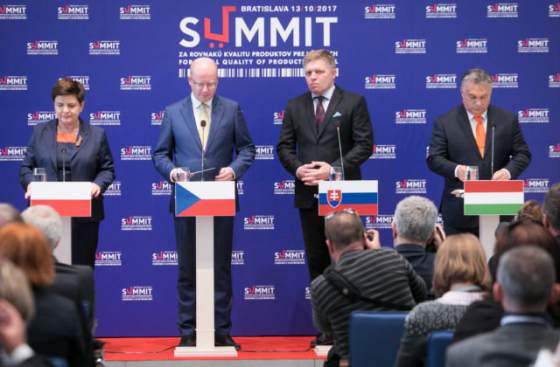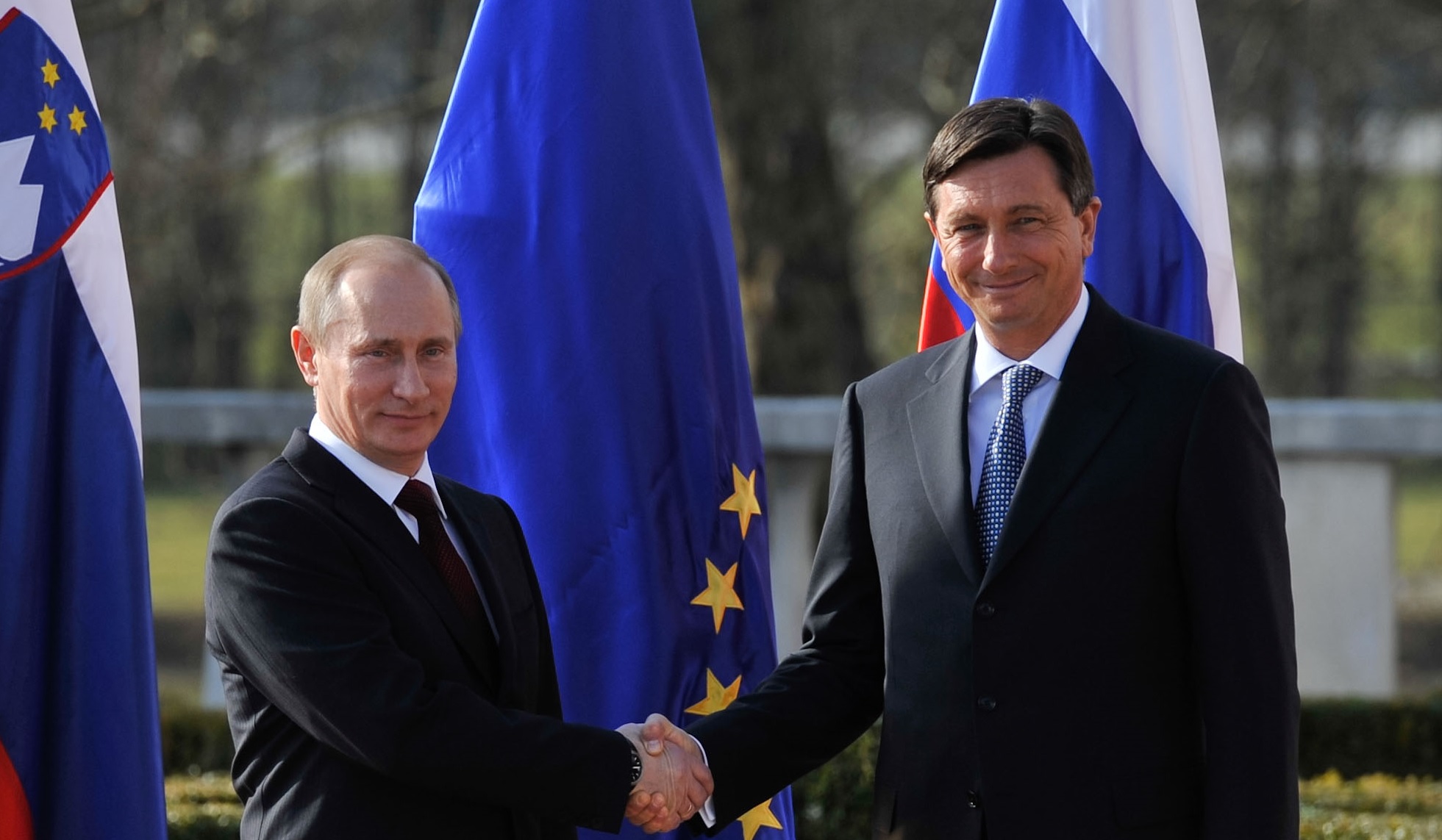Europe – The July 15 meeting between German Chancellor Angela Merkel and U.S. President Joe Biden, which resulted in the signing of joint declarations on energy and human rights, is widely seen by analysts as a victory for German and Russian positions, particularly with regard to the completion of the Nord Stream 2 gas pipeline linking Russia and Germany.
While the Democrats seem to be reluctantly accepting the end of sanctions against those involved in the construction of the pipeline – without abandoning their doctrine that the doubling of Nord Stream is primarily part of a project to extend Russian influence in Europe – some Republicans are going as far as to call President Biden a Russian agent representing a threat to American national security.
Counterproductive sanction
However, for the last several months, there had not been much doubt left over the result of this gas conflict, and the expected outcome was only confirmed by the words of President Biden during his meeting with the German chancellor, when he said about NS2, “by the time I became president, it was 90% completed and imposing sanctions did not seem to make any sense”, adding that it would be better to keep working together as allies.
Such a statement makes us wonder whether the arsenal of US sanctions – which had gone so far as to affect the insurance and equipment certification companies associated with the gas project – really made sense. Clearly, the American sanctions policy is part of a political and media war in which it is always extremely difficult to decide between the belligerents.
On the other hand, from an economic and financial point of view, the failure is undeniable: the American sanctions have been largely counter-productive, having forced Russia to diversify its economy and its exports and to push forward a policy of de-dollarization. This is a worrying picture for Washington, which has also succeeded in pushing Russia into the arms of China through its sanctions policy, even though the two countries did not necessarily plan to get closer so quickly.
Is the United States finished with Russia?
With Washington having failed to prevent Nord Stream 2 and Russian economic advances, one can imagine the American unease in the face of China, which has a growing monetary influence, displaying more and more openly a policy of consolidation and development of its domestic demand. In other words: we are witnessing a profound reconfiguration of the global capitalism that has been in place since the end of the Cold War.
On 21 July on Fox News, former CIA director and former Secretary of State Mike Pompeo’s feverishness was not so much palpable when he declaimed the traditional refrain about “the Russian threat”, NATO interests, and his “Polish and Ukrainian friends” as it was when he uttered the three despised letters: C.C.P. (Chinese Communist Party).
The French and German media, which are not usually supportive of soft positions towards Vladimir Putin’s Russia, explained the Biden–Merkel agreement by Washington’s desire to have Berlin and Moscow on its side when confronting China.
This is the paradox of the world to come: the great clarifications underway result as much in the return of political blocs as in their overcoming by the interconnection of economic, technological and political networks. In short, it is a return to geopolitics in a context of the end of geopolitics.
Germany and other
Germany, which has been phasing out its nuclear power plants and wants to get rid of coal, sees Nord Stream 2 as a vital necessity. This gas project is supported by a majority of Germans, especially on the Baltic coast, where the pipeline will make landfall. This is a former East German region where the local population and actors have never really rid themselves of their pro-Russian sympathies: quite the contrary.
Only the German Greens, who manage to combine militant relays inspired by Greta Thunberg (the Fridays For Future demonstrations) and high-level Ukrainian contacts (thus with people supporting the Ukro-Nazi militias), are opposed to the project. If they were to contribute to the formation of a new government in the autumn, they would obviously try to negotiate their participation by putting Nord Stream 2 on the table. However, given the progress of the project, it is difficult to see how it could be stopped, except by imagining acts of piracy.
The certification of the Nord Stream 2 gas pipeline is scheduled to take place at the end of August, in a context of rising gas prices, as the various players realize that it is impossible to meet European gas demand without it.
Another lesson from Nord Stream 2 is that, although omnipresent when it comes to implementing social engineering methods and making statements on issues wrongly described as “societal”, the European Union is proving once again that it is geopolitically non-existent, and that if there is any regional power in Europe, it lies in Berlin.
The completion of the gas project adds up to a German political monopoly in Europe. The fact that such a monopoly involves deepening ties with Russia – a move usually strongly condemned by a number of Western actors (as in the case of Hungary) – without being universally condemned shows how much Berlin is the only real player on board in Europe.
Those who see the Biden–Merkel agreement as a retreat from Washington’s positions may be right. What is more certain, however, is that this agreement above all shows openly that for the Americans, only Berlin counts in Europe.
Poland and Ukraine protest
The big loser in this agreement is undoubtedly the Kiev government, which is seeing the realization of what it has been fearing for several years: a considerable loss of revenue from gas transit fees (around 3 billion dollars per year). Without these revenues, Ukraine will have great difficulty maintaining its gas network (over 33,000 km) in order to be able to obtain new transit contracts after 2024.
Such an economic blow – which only an increase in Chinese investment in Ukraine will help to alleviate – is made even more painful by the fact that the maintenance of the Ukrainian network requires the help and know-how of German engineers.
The completion of the gas project also seems to mark the end of a cycle in relations between Kiev and Moscow. Russia intends to put an end to thirty years of non-repayable subsidies granted to Ukraine (through advantageous gas prices), which has been increasingly interested in closer ties with the West since 2004 and was accused in 2006 and 2009 of siphoning gas transiting through its territory. The routing of Russian gas through the Baltic Sea is an element of the distorted relationship between Moscow and Kiev, and is motivated by Russia’s desire to lower transport costs for its gas exports.
The Biden–Merkel agreement contains two points designed to mitigate Ukraine’s fears. Firstly, there is Germany’s commitment to take sanctions against Russia if the latter were to use gas as a means of political pressure. In view of what is at stake for Germany, however, this commitment seems to be devoid of any substance. Secondly, the agreement provides for financial support to Ukraine for its energy transformation. But even the elites in Kiev do not show much interest in that commitment, as its value is less than what Ukraine will lose if its gas transit contracts are not renewed.
Kiev seems to be clearly adrift and President Zelensky no longer interests many people, while the Americans seem to content themselves with the state of decay of a country kept artificially afloat.
Unsurprisingly, Poland joined with Ukraine in condemning the Biden–Merkel agreement in a common statement, thus reiterating its unchanged opposition to the Nord Stream 2 project.
Warsaw’s reaction to the completion of the Nord Stream 2 project can of course be explained, and the Polish elites are well aware that they have no choice but to embark their country on the road to energy diversification. Joining Ukraine, on the other hand, is not necessarily the best solution for Poland, given the state of economic and political decay in which Kiev is likely to find itself in the months and years to come. The risk that Ukraine will no longer exist in its present form in the future is also becoming increasingly likely.
The context is clear: with the agreement of the United States and satisfying several years of Russian trade and political ambitions, Germany is settling even more into its role as Europe’s policeman, all this at a time when China is no longer concealing its plans to cement its own economic, financial and monetary zone.
It is certainly a clarification, but in anticipation of what? Will the Germans content themselves with their role as policemen? Does the United States still have enough resources to challenge the rise of China? In any case, the European continent, which has increasingly been sinking into a hygienist obsession, is quite helpless against being sold out, after having lost its soul. With Nord Stream 2, has Germany just negotiated its share?
—
The points of views expressed within this article are those of the author and do not necessarily reflect those of the editors.




